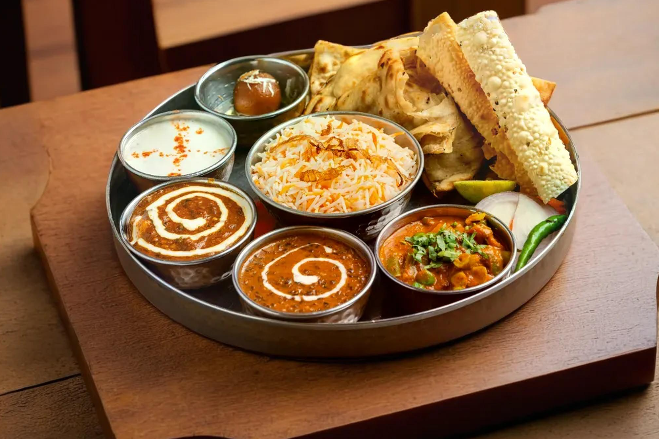Zero-Waste Cooking At Indian Restaurants In Edison NJ

In a world where sustainability and mindful eating are gaining attention, restaurants Edison NJ Indian are redefining what it means to serve traditional cuisine responsibly. The growing movement toward zero-waste cooking has found its way into Indian kitchens, where resourcefulness has always been part of culinary culture. From using vegetable peels in broths to repurposing rice into snacks, Indian cuisine has long embraced practices that reduce food waste while enhancing flavor. Today, restaurants in Edison are taking these age-old habits and blending them with modern eco-friendly methods.
The Essence of Zero-Waste Cooking
Zero-waste cooking isn’t a passing trend; it’s a philosophy that encourages minimizing food waste at every stage of preparation — from sourcing ingredients to serving the final dish. In the context of Indian restaurants, this approach involves rethinking how traditional recipes can be made more efficient without compromising on authenticity.
Indian cooking naturally supports this mindset. Dishes like sabzis use every part of the vegetable, chutneys turn excess herbs into condiments, and leftover lentils often become new creations like parathas or fritters. The secret lies in creativity and respect for ingredients — something deeply rooted in Indian culinary tradition.
Sustainable Ingredient Sourcing
One of the key aspects of zero-waste cooking is sourcing ingredients mindfully. Many Indian restaurants in Edison now prioritize local farms, seasonal produce, and suppliers who follow ethical practices. This not only reduces the carbon footprint but also ensures that customers enjoy fresh, vibrant meals.
Traditional Indian recipes, especially vegetarian ones, naturally lend themselves to sustainability. Pulses, grains, and vegetables form the base of many dishes, and their long shelf life makes them ideal for minimizing spoilage. Moreover, using whole spices instead of pre-ground powders helps maintain both quality and shelf stability, aligning with zero-waste goals.
Traditional Wisdom Meets Modern Sustainability
Indian households have always been resourceful — reusing leftovers creatively or finding new life for every scrap of food. Restaurants Edison NJ Indian are adopting these traditional practices on a larger scale. For example:
- Peels and stems from vegetables are used in stocks and soups.
- Excess lentils become spicy pancakes or fillings for wraps.
- Leftover rice transforms into fried rice, kheer, or stuffed peppers.
- Overripe fruits find new purpose in desserts or smoothies.
By embracing these principles, Indian restaurants reduce waste while offering an authentic taste of home-style innovation — a win for both the planet and the palate.
Smart Portioning and Menu Planning
Another important part of zero-waste cooking is portion control. Indian meals are known for variety, but that can sometimes lead to leftovers. Many Edison restaurants now design menus with portion flexibility, allowing diners to choose the quantity they need.
Additionally, kitchens plan their daily menus based on demand patterns and ingredient availability, ensuring minimal excess preparation. For buffets or catering services, careful forecasting helps align supply with customer flow, significantly cutting down on unused food.
The result is a dining experience that remains abundant yet mindful, reflecting the essence of sustainability without reducing satisfaction.
Upcycling Waste into Flavor
One of the most creative aspects of zero-waste cooking is upcycling — turning what would otherwise be discarded into flavorful dishes. In Indian cuisine, this often involves fermenting, pickling, or transforming ingredients. For instance, mango seeds can be ground into spicy chutneys, while citrus peels become tangy marmalades.
Some restaurants are even experimenting with dehydrating fruit and vegetable scraps to make natural seasonings or snacks. These methods not only reduce waste but also introduce new layers of flavor, showcasing how sustainability and culinary artistry can go hand in hand.
The Impact Beyond the Kitchen
Zero-waste efforts go beyond cooking techniques. Many restaurants in Edison are adopting eco-conscious operations such as:
- Using biodegradable or reusable packaging for takeout orders.
- Reducing single-use plastics in the kitchen and dining areas.
- Composting organic waste.
- Encouraging customers to take home leftovers in sustainable containers.
These changes create a positive cycle — customers appreciate the restaurant’s environmental responsibility, while the restaurant reduces costs and waste footprint over time. Sustainability becomes part of the brand identity, not just a behind-the-scenes effort.
Conclusion: A Greener Way to Enjoy Indian Cuisine
The idea of zero-waste cooking is not new to Indian culture; it’s simply being rediscovered in a modern context. By combining traditional practices with innovative sustainability strategies, restaurants Edison NJ Indian are setting an example for how culinary excellence can go hand in hand with environmental responsibility.
Next time you visit an Indian restaurant in Edison such as Moghul Restaurant, savor not just the spices and flavors but also the care behind every ingredient. It’s more than a meal — it’s a mindful experience that nourishes both body and earth.